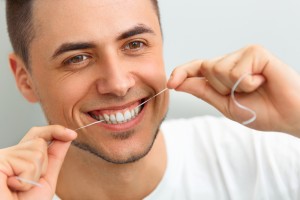 The good news is human papillomavirus (HPV) typically goes away. The bad news HPV is and STD that can cause a lot of other problems before it ever does. Here’s what you need to know to mitigate and to prevent oral problems.
The good news is human papillomavirus (HPV) typically goes away. The bad news HPV is and STD that can cause a lot of other problems before it ever does. Here’s what you need to know to mitigate and to prevent oral problems.
HPV stats
According to the CDC (Centers for Disease Control and Prevention), there are more than 100 types of HPV. Yes, it’s that common. And 40 of those versions of the virus can spread sexually to the genitals, the mouth and the throat.
When it comes to oral HPV, it’s more prevalent in men than women. The CDC estimates that 10% of males and 3.6% of females have the oral version of HPV.
What HPV can do
It can take years, but after one is infected with HPV, cancer can develop. The CDC says 70% of throat, tongue and tonsil cancers are caused by HPV. It’s not clear if HPV is the lone factor in causing those so-called oropharyngeal cancers. Tobacco—smoking it and/or chewing it— is a significant risk factor.
If you have the following symptoms, you’ll want to see your doctor right away:
- Persistent sore throat
- Earaches
- Hoarseness
- Swollen lymph nodes
- Pain when swallowing
- Unexplained weight loss
HPV vaccine
This is a touchy subject for a number of reasons, but one way to prevent HPV is via vaccination. Although a portion of the population has concerns about vaccines in general, that’s not why it’s a touchy subject when it comes to HPV. Rather, the fact that the vaccine is recommended for 11- to 12-year-olds makes some parents shudder. The medical community generally believes that by vaccinating a child before their teen years ups the odds of them being protected before they are exposed rather than after it’s too late.
Vaccines are not recommended once a person reaches 27 years of age. In some cases, though, a doctor may recommend getting the vaccine from 27 to 45 years of age when the person has not already been vaccinated.
Regardless of the controversies, the data is clear that HPV vaccines are doing their job. Since the vaccine has been in use, there has been an 86% drop in some types of HPV for teen girls, a 71% drop for young women, and a 40% drop in cervical precancers.
Preventing HPV the old-fashioned way
So, what else can you do to make sure HPV doesn’t affect you? Well, under the no-fun category, you can abstain entirely from oral sex. And under the slightly more realistic category there are condoms and dental dams.
Most folks have heard of condoms and know how to use them, but not so much when it comes to dental dams. Well, they are typically six-inch, square sheets made of latex. They were invented to isolate the part of the mouth being worked on from the rest of the mouth. They can double as protection from STDs when placed over the vagina or anus during oral sex.
That’s right, thanks to us dentists, you can have safer oral sex. You’re welcome.







Leave a Reply